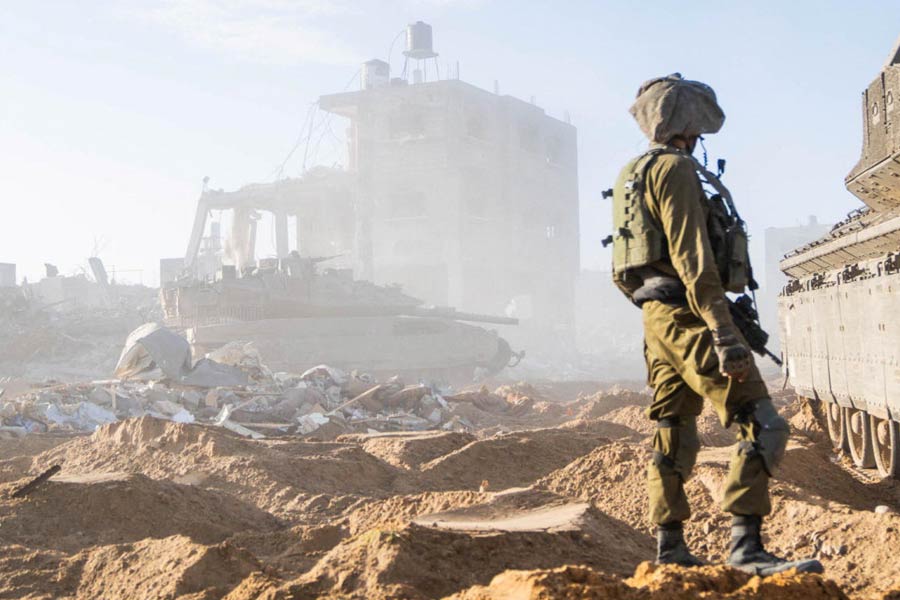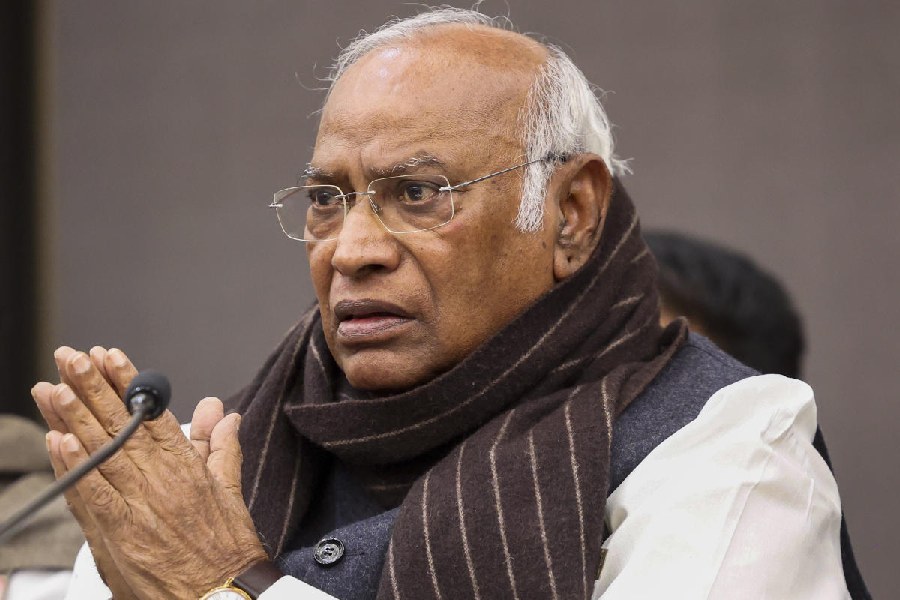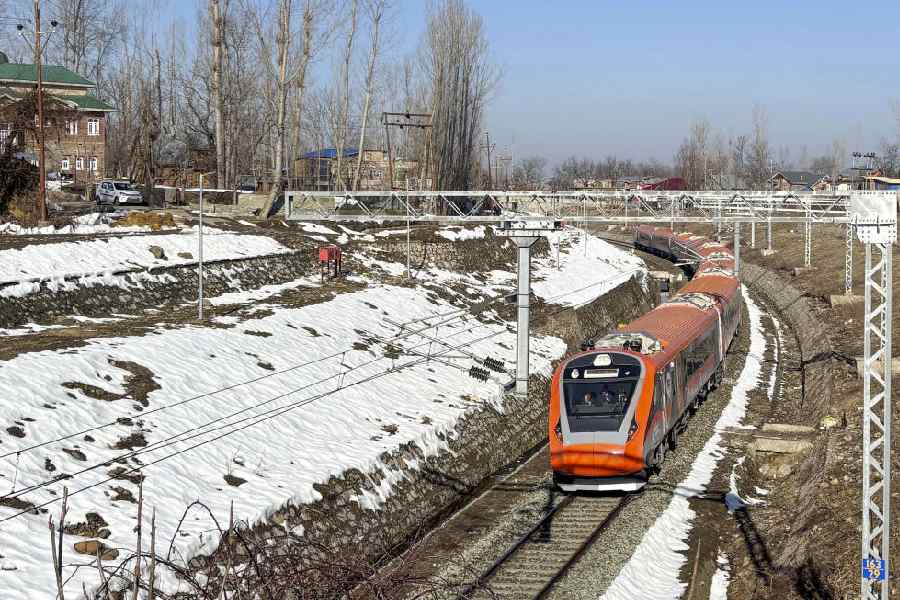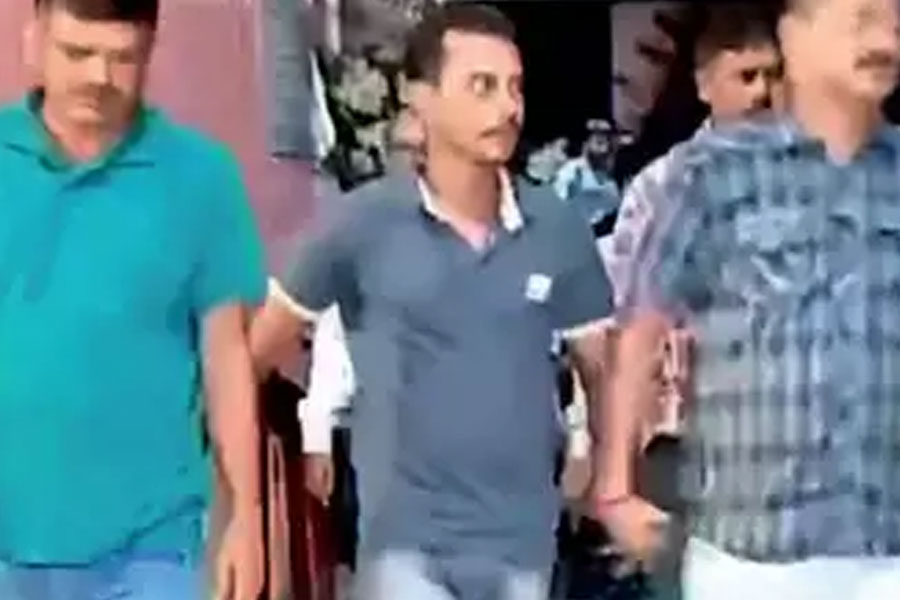Israeli tanks pushed deeper into central and southern Gaza on Saturday under heavy air and artillery fire, residents said, pressing a deadly offensive that has razed much of the enclave and that Israel has said may last months more.
Fighting was focused in al-Bureij, Nuseirat, Maghazi and Khan Younis, backed by intensive air strikes that filled hospitals with wounded Palestinians.
The bombardment has killed 165 people and wounded 250 others in Gaza over the past 24 hours, health authorities in the Hamas-run territory said.
At Nasser Hospital in Khan Younis, the biggest and most important medical facility in the south of the tiny, crowded territory, a Red Crescent video showed paramedics rushing a tiny, dust-covered baby into a busy hospital as one shouted "there is breathing, there is breathing".
Almost all of Gaza's 2.3 million residents have been forced from their homes by Israel's 12-week assault, triggered after Hamas and allied groups killed 1,200 people and captured 240 hostages in a rampage in southern Israel on Oct. 7.
The offensive has killed at least 21,672 Palestinians, according to health authorities in Gaza, with more than 56,000 injured and thousands more feared dead under the rubble.
Israel says 170 of its military personnel have been killed in the Gaza fighting.
The conflict risks spreading across the region, drawing in Iran-aligned groups in Lebanon, Iraq, Syria and Yemen, that have exchanged fire with Israel and its U.S. ally, or targeted merchant shipping.
Bombardment has smashed houses, apartment blocks and businesses and put hospitals out of action. On Saturday the Palestinian Culture Ministry said Israeli strikes had struck a medieval bathhouse. The old Great Mosque was hit earlier in the war.
Ziad, a medic in Maghazi in central Gaza, was fleeing with his family of three children to Rafah, on the border with Egypt.
"We want a ceasefire now. Not tomorrow even. Enough, more than enough, already," he said.
Israeli Defence Minister Yoav Gallant said on Friday troops were reaching Hamas command centres and arms depots. Pictures released by the military showed soldiers moving across churned-up earth among ruins of destroyed buildings.
Artillery shells
The Israeli military said it had destroyed a tunnel complex in the basement of one of the houses of the Hamas leader for Gaza, Yahya Sinwar, in Gaza City. Troops also raided the Hamas military intelligence headquarters and an Islamic Jihad command centre in Khan Younis, killed several gunmen elsewhere in the town as they prepared ambushes, and destroyed targets including a weapons foundry, a military statement said.
In northern Gaza, Israeli forces killed more than 15 gunmen in clashes and captured weapons caches, the statement said.
Hamas and the Islamic Jihad said in separate statements their fighters destroyed and damaged several Israeli tanks and troop carriers in attacks across Gaza on Saturday. They also said they fired mortar bombs against Israeli forces in Khan Younis and Al-Bureij as well as in areas in northern Gaza.
Israel's stated aim is to destroy Hamas and while the U.S. has called for it to scale down the war in coming weeks and move to targeted operations against the group's leaders, so far it shows no sign of doing so.
On Friday US Secretary of State Antony Blinken approved the sale of more artillery shells and other equipment to Israel without congressional review, the Pentagon said.
Israel said on Friday it had facilitated the entry of vaccines into Gaza in coordination with UNICEF, the U.N. children's agency, to help prevent the spread of disease.
The little aid reaching the enclave since the start of the war, when Israel imposed a near total blockade on all food, medicine and fuel, has come across the border with Egypt.
Israel has only allowed access to the south of the enclave, where it started ordering all Gaza civilians to move from October, and aid agencies have said Israeli inspections have stopped all but a small fraction of needed supplies getting in.
The Israeli government said it does not limit humanitarian aid and the problem was with distribution inside Gaza.
Al-Bureij, Nuseirat and Khan Younis are three of eight camps set up in Gaza for some of the Palestinians who fled or were driven from their homes during Israel's creation in 1948. The camps have gradually become crowded urban areas after decades of building. Other Palestinian refugees live in camps in Lebanon, Syria, Jordan and the West Bank.
Palestinian journalist killed
South Africa asked the International Court of Justice on Friday for an urgent order declaring Israel in breach of its obligations under the 1948 Genocide Convention in its crackdown against Hamas in Gaza.
In response, Israel's foreign ministry blamed Hamas for causing the suffering of Palestinians in Gaza by using them as human shields and stealing relief aid from them. Hamas denies the accusations.
The Gaza war has also stoked violence in the Israeli-occupied West Bank. On Saturday, Israeli troops shot a Palestinian motorist who tried to ram them near the West Bank city of Hebron, the army said. He was killed in the incident, the Palestinian health ministry said.
A Palestinian journalist working for Al-Quds TV was killed along with some of his family members in an air strike on their house in the Nuseirat camp in central Gaza Strip on Friday, health officials and fellow journalists said.
Gaza's government media office says 106 Palestinian journalists have been killed in the Israeli offensive.
Israel has previously said it has never and will never deliberately attack journalists and that it is doing what it can to avoid civilian casualties, but the high death toll has caused concern even among its staunchest allies.










